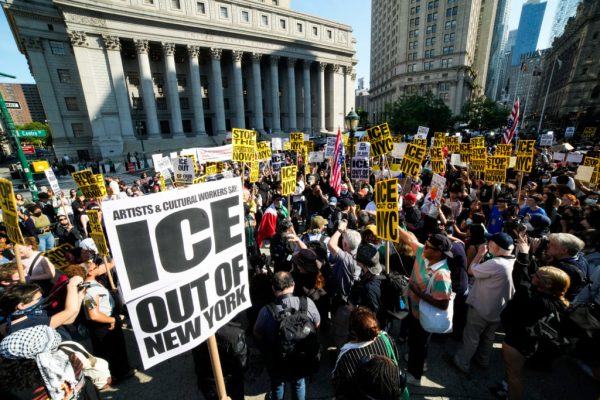The Questioning of Same-Sex Marriage
Two hands forming a heart with a rainbow overlay. Around 300,000 same-sex couples have gotten married since its legalization.
The U.S. Supreme Court’s legalization of same-sex marriage received new criticism from two conservative justices. Justices Clarence Thomas and Samuel Alito declared on Monday Oct. 5, 2020, that “religious liberty has been under siege since the Supreme Court in 2015 found a constitutional right to same-sex marriage” according to CNN Politics. Since the death of Justice Ruth Bader Ginsburg, the Supreme Court has not been the same.
With the retirement of Justice Anthony Kennedy in 2018 and Ginsburg’s death, only three members of the majority in the same-sex marriage case remain: Justices Stephen Breyer, Elena Kagan, and Sonia Sotomayor.
The court is on the verge of a more conservative majority with the possible appointee of Amy Coney Barret. Her confirmation would solidify a 6-3 conservative majority. She has voiced that her approach to the law is aligned generally with those of “her mentor, Justice Antonin Scalia, one of the dissenters in the same-sex marriage case” according to Associated Press.
In the 2015 case, Thomas wrote that in the 5-4 majority had “read a right to same-sex marriage” into the Constitution, “even though that right is found nowhere in the text” writes Mark Sherman & Jessica Gresko.
Thomas suggested that the court revisit the case because it has “created a problem that only it can fix.” Until that happens, he said, the case will continue to spread, “ruinous consequences for religious liberty.” Reversing the court’s decision in the same-sex marriage case would seem very difficult, but Thomas’ statement stressed liberals’ fears that the court could roll back some of their hardest-fought cases.
Chief Justice John Roberts joined Thomas and Alito in their dissent from the 2015 Obergefell decision. At the time, the chief justice felt as though the justices in the Obergefell majority had made the wrong decision. However, in June, Roberts signed Title VII of the 1964 Civil Rights Act that would expand civil rights protection for gay and transgender workers.
Thomas declared, “Due to Obergefell, those with sincerely held religious beliefs concerning marriage will find it increasingly difficult to participate in society without running afoul of Obergefell and its effect on other antidiscrimination laws” according to CNN Politics. Neither Roberts nor fellow conservatives Neil Gorsuch and Brett Kavanaugh joined Thomas’ statement. The marriage views of both Gorsuch and Kavanaugh are, respectively, not known.
Gay rights advocates and Democratic leaders attacked the justices for disregarding judicial restraint and threatening the future of same-sex marriage. Some members of the Senate Judiciary Committee, who are set to take up Barret’s nomination, may now induce more attention on the nominee’s views concerning LGBTQ+ rights.
Sen. Minority Leader Chuck Schumer declared on Monday in a Facebook post: “Make no mistake: This is what’s at stake with Republicans trying to force through this illegitimate process. People’s rights. Ending marriage equality. Stripping away LGBTQ+ rights. We are fighting to stop it.”
Alphonso David, president of the Human Rights Campaign, said in a statement that Thomas and Alito “renewed their war on LGBTQ rights and marriage equality” as the direction of the court “hangs in the balance.”
James Esseks, director of the American Civil Liberties Union LGBT & HIV Project, said in a statement: “It is appalling that five years after the historic decision in Obergefell, two justices still consider same-sex couples less worthy of marriage than other couples.”
“When you do a job on behalf of the government — as an employee or a contractor — there is no license to discriminate or turn people away because they do not meet religious criteria,” Esseks said. “Our government could not function if everyone doing the government’s business got to pick their own rules.” CNN legal analyst & Supreme Court biographer, Joan Biskupic, writes.
The future is unpredictable with so many variables at play. Do you agree with those who stand against same-sex marriage or with those who stand for it? What is the reasoning behind your choice?
Your donation will support the student journalists of Canyon High School. Your contribution will allow us to pay for our print issue magazine, website, and equipment costs.







